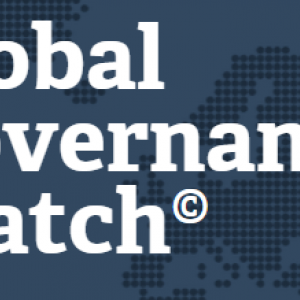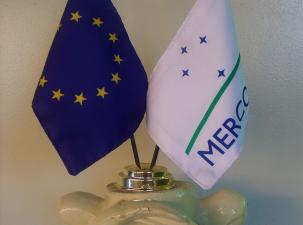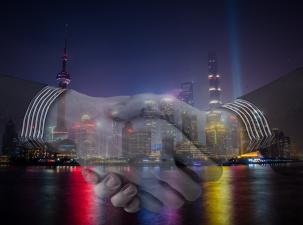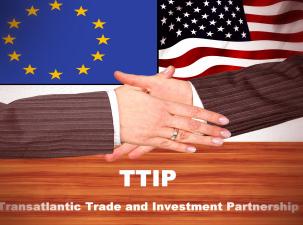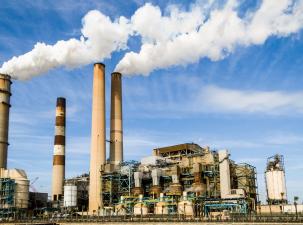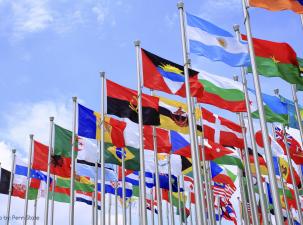Globalization
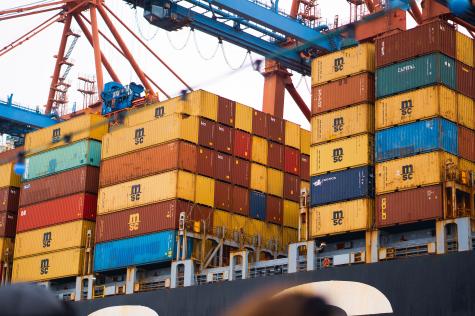
➡️ Globalization & International Trade – Role in Economic Growth & Inequality
Globalization refers to the growing interdependency of the world's economies, cultures, and populations. The idea originally took root as early as 130 BC with the development of the Silk Road, where a number of trade routes were established between China, Central Asia, and the Mediterranean. It is the earliest example of exchanging ideas, products, and customs over vast distances.
Digitalization and the advancement of technology have transformed globalization and redefined what it means to be connected. Once hailed for fostering international relations, opening markets and new cultures to the world, and lowering the cost of products, it is now criticized for being a new form of capitalist imperialism, driving economic inequality, and the exploitation of cheap labour. Globalization has become a system which serves corporate interests and profit over those of society.
Jump straight to our resources on ➡️ Globalization
Explore our comprehensive guides on -
-
Free Trade Agreements such as RCEP, TPP, and ASEAN
-
Key Players including - WTO, World Bank, G7 and G20, IMF, WEF, and OECD
-
Corporate Social Responsibility and Multinational Corporations
-
Globalization as a Cause of Economic Inequality
-
Globalization and the Arms Trade
Global trade reached a record $33 trillion in 2023 but is slowing down. The Russian war in Ukraine, the war between Israel and Palestine, increasing geopolitical tensions, high energy prices, the green transition, tighter monetary policies, rising interest rates, and inflation have all impacted the industry. While there is no evidence yet of deglobalization, economists have noted a change in public opinion towards global trade as we become more aware of unfair trade agreements, inequality, unemployment, exploitation, and the environmental consequences of hyperglobalization.
Check out our related topics on economy, politics, environment, and social justice and follow our Twitter list for up-to-the-minute news from experts, organizations, and top economists.
German speakers should visit our partner site, Bessere Welt Info, for over 500 links to Globalisierung.
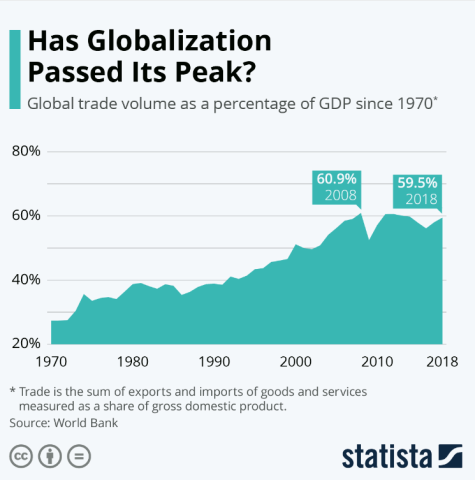
Globalization as a Driver of Progress
In the past, geographic constraints prevented business, commerce, and economies from growing. Trade began on a regional scale, and with advances in technology, the shipping industry, and the invention of aeroplanes, it was able to expand much further.
Globalization allows for much wider labour pools to be tapped into. Developing nations benefit by acquiring new skills and knowledge, and rich nations benefit by outsourcing work to cheaper labour markets. This work is often low-skilled and low pay, but it does help to build the economy of developing countries by creating new employment opportunities.
The rapid spread of technology, such as smartphones, was aided by globalization as the flow of resources, like rare earth metals, became readily available. Globalization also fosters international cooperation and allows countries to specialize in specific goods, for example, tropical fruit and coffee, which only grows in certain parts of the world. Specialization has proven to be a driver of economic independence in emerging markets.
Cross-border investment is a direct result of globalization as wealthy countries seek to improve foreign opportunities for business. The receiving country benefits from a boost in capital, and both sides benefit from increased productivity. Globalization is a proven accelerator of economic growth and overall poverty reduction.
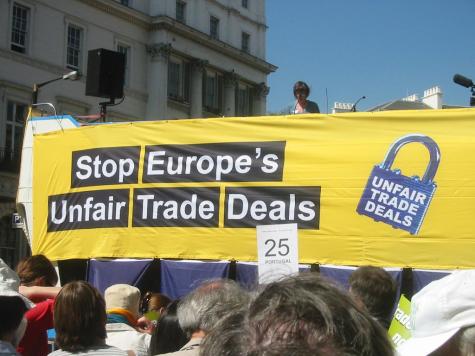
The Disadvantages of Globalization
-
GLOBALIZATION & INEQUALITY
While it is true that globalization has resulted in higher standards of living, improved wages, and economic growth, it is important to recognize that these benefits are not evenly distributed. Globalization is good for low-income populations, but only on average.
Developed industrial nations profit most from advancing globalization. China is the world's largest benefactor, with its GDP increasing from 4.1% in 1990 to a staggering 17.9% in 2016. China has emerged as the world's workshop, and international trade has played a considerable role in their success.
During the same period, sub-Saharan Africa's share of GDP rose just 0.2%. The figures for the Middle East, North Africa, Afghanistan, and Pakistan were also marginal. The share of GDP in Latin America and the Caribbean actually fell.
This disproportionate growth alongside increased competition is bad news for smaller companies and organizations that cannot supply the same products at such a low price. These prices are possible due to the exploitation of cheap labour in developing nations with weak labour protections. Sweatshops and forced labour have emerged as serious issues as companies compete to provide goods at the lowest possible prices.
Fast fashion is an example of globalization at its worst. Not only is it terrible for the environment, but it provides a breeding ground for human rights violations. In developing countries, 250 million children are forced to work in sweatshops. Women make up 85-90% of sweatshop workers. The workers are paid barely enough to cover the basic costs of food, trapping them in a cycle of poverty. Four million people are employed in the garment industry in Bangladesh. The average worker earns less in a month than an average U.S. worker earns in a day.
Doubling the salary of a sweatshop worker would only increase the consumer cost of an item by 1.8%, yet most multinational companies prefer to absorb the profit themselves. Migrant workers and children are especially vulnerable. Human trafficking has also been linked to these factories.
Outsourcing and delocalizing low-skilled labour also means job losses for those in developed nations. Other issues include dependency on foreign trade, weakened sovereignty, international ripple effects of economic slumps, and high vulnerability of supply chains. This was demonstrated during the covid-19 pandemic, the supply of Russian gas and oil during the ongoing invasion of Ukraine, and serious grain and fertilizer shortages resulting in a global food crisis.
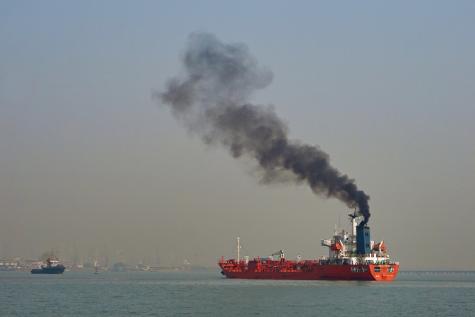
-
GLOBALIZATION & the ENVIRONMENT
Globalization has a deadly footprint. The further our products travel before they reach us, the more fuel is consumed, and the more greenhouse gas emissions are released. The transport sector is responsible for roughly one-quarter of all carbon emissions released. In the last 2 decades, except for Europe, CO2 from transport rose in every region of the world. Asia takes first place as the largest emitting region.
Globalization has become a major cause of air pollution. It is responsible for the deaths of 6.5 million people every year. Almost 92% of these deaths occur in low and middle-income countries where pollution levels are left unchecked and the manufacturing industry thrives.
Globalization also contributes to extensive habitat destruction. Increased development, the expansion of infrastructure such as roads and bridges, natural resource exploitation, land clearing, logging, monocultures, invasive species, and overfishing are all consequences of the increased demand for production and trade.
The shipping industry accounts for approximately 11% of global transportation CO2 emissions. More than 90% of world trade relies on cargo shipping for transportation, and the industry keeps growing. If global shipping were a country, it would be the world's 6th largest producer of greenhouse gases.
Other issues with the industry include lack of international regulation, production of nitrogen oxide, water pollution, oil spills, sound pollution which impacts wildlife, and collisions with marine life, including endangered whale species.
-
GLOBALIZATION & the ARMS TRADE
Globalization has allowed the international trade of arms to spiral into one of the most profitable businesses in the world. Arms exports and the arms industry fuel conflict, human rights abuses, violations of international humanitarian law, repression, displacement, death, suffering, and poverty.
The global value of weapons production, investment in high-tech weapons manufacturing, and the sale and transfer of this equipment is worth a staggering $138 billion.
The increasing globalization of the arms trade means that components, production, and assembly are all sourced in different countries. This makes it easier to get around weak domestic arms regulations and allows the industry to operate relatively unchecked.
Arms trafficking is estimated to be worth between $1.6 to $2.2 trillion, making it the 9th largest criminal market. In 2015, approximately 640 million illicit firearms were in circulation globally. The trade is about 15% of the total trade in legal firearms.
Governments almost always prioritize military spending over societal needs. In Afghanistan, military spending amounts to more than one-third of total government spending. In fragile countries, military expenditure is typically more than twice that spent on healthcare. Health and social protection are much less likely to be prioritized in conflict-affected countries.
“The problem is that the global arms trade is entirely free of international regulation. In a world in which the flow of consumer goods is governed by a plethora of international conventions and regulations, deadly weapons have an uncanny knack of slipping through the net” - Hilary Benn
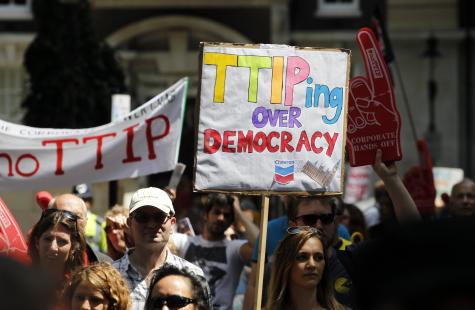
Free Trade Agreements
Free trade agreements began as early as 1860 and were designed to remove trade barriers, protect national interests, and enhance the rule of law. The largest free trade agreement in the world is RCEP. It exists among the Asia-Pacific nations, including China, Japan, South Korea, and Australia. The 15 RCEP countries account for 29% of global GDP.
Free trade areas benefit from increased economic growth, foreign investment, industry expertise, the transfer of technology and training, and the reduced need for governmental subsidies. These benefits however, often come at the expense of domestic industries, workers' rights, and reduced tax revenues from import tariffs and fees.
They can also lead to the exhaustion of natural resources and over-dependence on foreign countries. Free trade also allows companies to avoid international regulations. Corporations can even use trade agreements to sue governments for damages which harm their trade. For example, if environmental regulations restrict a company's operations, which in turn affects its profit, they are permitted to take legal action against this country for erecting unfair trade barriers.
Weigh up the pros and cons of the TTIP, TPP, CETA, NAFTA and many others as we analyse geopolitical dominance, weakened regulations, the economic effects, lobbying issues, and the campaigns fighting against free trade agreements.
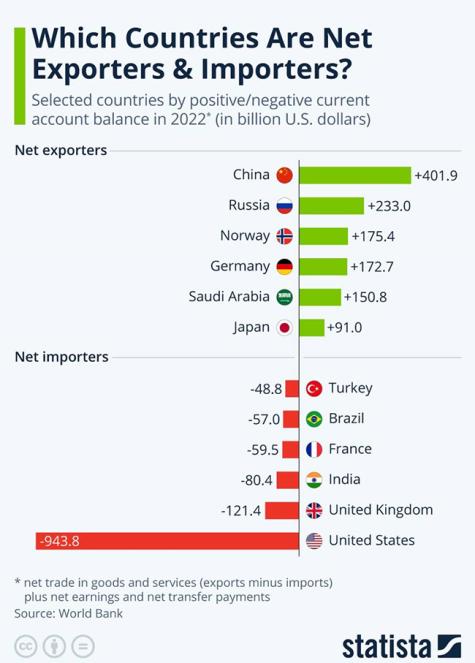
Who are the Main Players in Globalization?
Key actors in the global economy control globalization, international trade, and financial systems, such as the G20, the G7, the World Bank, the International Monetary Fund, the World Trade Organisation, the World Economic Forum, the World Social Forum, and the OECD. Find comprehensive insight featuring key news sources, critical analysis, and information on meetings, conferences, and summits.
As world trade has grown, leaders and rivalries have emerged. Trade is big business; in 2019, it represented 60% of global GDP. The rise of China as an exporting powerhouse and economic leader in the last 2 decades ruffled feathers, especially in the U.S., as global competition and influence shifted to the East.
Learn more about the China-US trade conflict, the changing dynamics of world trade, and the dominance of transnational corporations.
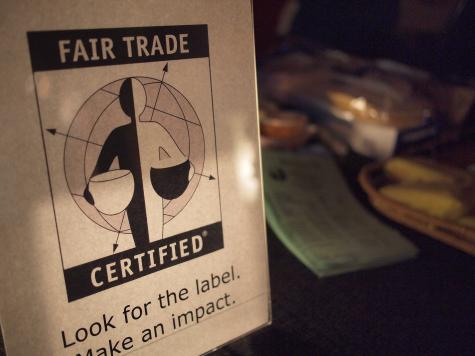
Reforming Globalization for a Better World
Overall, the spread of globalization has been beneficial, lifting billions of people out of poverty and spreading ideas, innovation, and technology around the world. By recognizing the pitfalls of a neoliberal global economy, we can work towards greening globalization and achieving a more equal spread of financial gains.
Workers' rights must be strengthened, and employment losses due to outsourcing must be minimalized. We must reduce our dependence on vulnerable supply chains, which leave economies open to market crashes and shortages of vital goods.
A shift from just-in-time production to just-in-case production would prioritize supply security over cost efficiency. Using the Fair Trade organization as an example, we can ensure that the needs of everyone are met in an equitable and sustainable manner. Stricter emphasis on corporate social responsibility, especially within transnational corporations, will ensure that they play a more positive role within society and help protect our precious environment.
"If globalization is to succeed, it must succeed for poor and rich alike. It must deliver rights no less than riches. It must provide social justice and equity no less than economic prosperity and enhanced communication." - Kofi Annan
Better World Info is an open platform – We invite experts, NGOs, campaigners, and activists to contribute their knowledge and top resources! We are a constantly expanding, work-in-progress, committed to spreading reliable, critical, and investigative resources to help create an informed, knowledgeable, and curious world.
Author: Rachael Mellor, 15.12.23 (Updated 15.04.25) licensed under CC BY-SA 4.0
For further reading on Globalization see below ⬇️
Info on Globalization
- News[20]
- General Info[25]
- Our Links
- NGOs & GOs[24]
- Free Trade Agreements[1474]
- World Social Forum - WSF[143]
- Global Governance & Institutions - WTO, IMF, etc
- Neoliberalism & Globalization[319]
- Globalization of Dissent[161]
- Globalization & Arms Trade[26]
- Globalization & Environment[37]
- Globalization & Economic Inequality[43]
Hot Topics
Twitter list
Tweets by @BetterWorldInfo/lists/globalisation

